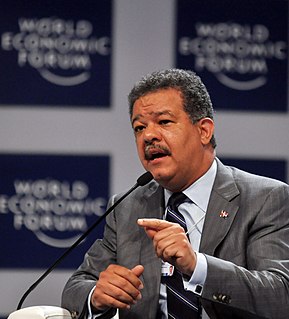| |||||||||||||||||
| |||||||||||||||||
| |||||||||||||||||
 |
|---|
| This article is part of a series on the politics and government of Iceland |
| Constitution |
Institutions |
A presidential election was held in Iceland on Saturday, 26 June 2004.

Iceland is a Nordic island country in the North Atlantic, with a population of 348,580 and an area of 103,000 km2 (40,000 sq mi), making it the most sparsely populated country in Europe. The capital and largest city is Reykjavík, with Reykjavík and the surrounding areas in the southwest of the country being home to over two-thirds of the population. Iceland is volcanically and geologically active. The interior consists of a plateau characterised by sand and lava fields, mountains, and glaciers, and many glacial rivers flow to the sea through the lowlands. Iceland is warmed by the Gulf Stream and has a temperate climate, despite a high latitude just outside the Arctic Circle. Its high latitude and marine influence keep summers chilly, with most of the archipelago having a tundra climate.
Contents
Traditionally, Icelandic presidential elections in which the incumbent president indicates a wish to obtain a new mandate are uncontested. The current president, Ólafur Ragnar Grímsson, was first elected in 1996 with 41.4% of the vote, [1] in an election with an 85.9% turnout contested by four candidates. In 2000 he was re-elected without opposition. When Ólafur Ragnar announced his intention to seek another mandate in 2004, two other candidates emerged:

Ólafur Ragnar Grímsson is an Icelandic politician who was President of Iceland from 1996 to 2016. He was first elected in 1996, and was elected unopposed for a second term in 2000. Ólafur was re-elected for a third term in 2004, for a fourth term in 2008 (unopposed), and for a record fifth and final term in 2012.
- Ástþór Magnússon, a businessman and pacifism activist, who won 2.6% of the vote in the 1996 election and failed to obtain the necessary 1,500 supporters when he attempted to stand in the 2000 election, and
- Baldur Ágústsson, who was unknown to the general public.
Unlike parliamentary elections in Iceland, presidential elections are not fought on the basis of party politics; instead, candidates attempt to use their personalities to attract supporters and appear as a living symbol of national unity.
By tradition, the presidency is an almost entirely powerless office, as the presidents almost never use the powers granted to them by the constitution, instead just exercising moral authority . Ólafur Ragnar, however, has expressed a wish to have a public discussion on the role of the head of state. Unprecedentedly in the history of the Icelandic Republic, on 2 June 2004 Ólafur Ragnar vetoed a media ownership law passed by the Althing. Davíð Oddsson, who was Prime Minister at the time, claimed that the veto was tainted because the president's daughter worked for Baugur Group, which had recently acquired roughly half of the country's media. There was little doubt that Ólafur Ragnar would be re-elected, but the veto controversy had an effect on the voting – the unprecedentedly high number of empty ballots (20.6% of the total) was thought to be largely a protest of the veto.

The Constitution of Iceland is the supreme law of Iceland. It is composed of 80 articles in seven sections, and within it the leadership arrangement of the country is determined and the human rights of its citizens are preserved. The current constitution was first instituted on June 17, 1944; since then, it has been amended seven times.
Moral authority is authority premised on principles, or fundamental truths, which are independent of written, or positive, laws. As such, moral authority necessitates the existence of and adherence to truth. Because truth does not change, the principles of moral authority are immutable or unchangeable, although as applied to individual circumstances the dictates of moral authority for action may vary due to the exigencies of human life. These principles, which can be of metaphysical or religious nature, are considered normative for behavior, whether they are or are not also embodied in written laws, and even if the community is ignoring or violating them. Therefore, the authoritativeness or force of moral authority is applied to the conscience of each individual, who is free to act according to or against its dictates.

The Alþingi is the national parliament of Iceland. It is the oldest surviving parliament in the world, a claim shared by Tynwald. The Althing was founded in 930 at Þingvellir, situated approximately 45 kilometres (28 mi) east of what later became the country's capital, Reykjavík. Even after Iceland's union with Norway in 1262, the Althing still held its sessions at Þingvellir until 1800, when it was discontinued for 45 years. It was restored in 1844 and moved to Reykjavík, where it has resided ever since. The present parliament building, the Alþingishús, was built in 1881, made of hewn Icelandic stone.







